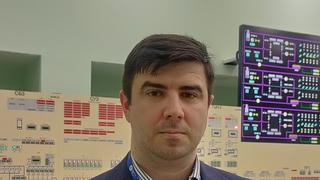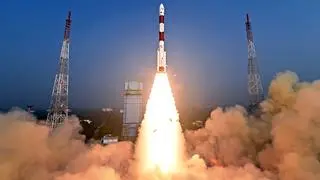Researchers at the Indian Institute of Technology Madras have proposed implementing a rapid groundwater recharge technology for combined flood and drought mitigation near Ayankulam village in Thisayanvilai taluk of Tirunelveli district. A proposal for this project has been submitted to the Tirunelveli District Administration, which had requested IIT Madras to study the phenomenon, says a release from the institute.
An open agricultural well in Ayankulam was widely reported to recharge an estimated 1,500-2,500 litres of water every second for several weeks without overflowing. The recharge water for the well was the overflow from an adjacent minor irrigation tank following the record monsoon rains in November-December 2021.
The well became a local attraction and was called a “miracle well” since typical wells would fill and overflow in a matter of hours at such recharge rates. Local villagers have been practising this ad-hoc method of well recharge during episodic intense monsoon years for several decades. They claim that this practice had increased the local water table in a 10-15 [km] radius from the well.
A team led by Venkatraman Srinivasan, Assistant Professor, Department of Civil Engineering, IIT Madras, after visiting the site in December, suggested implementing ‘Rapid Recharge Technology,’ which, when developed, can bring several benefits to the region, including mitigating floods and droughts; creating a subsurface dam for water storage without evaporation loss; distribution of water automatically and equitably throughout the region; filter and clean water when managed appropriately and preventing reverse saltwater intrusion in coastal aquifers.
Srinivasan, in the release, said that the unique hydro-geology of the region allows the implementation of this rapid aquifer recharge. In most other places, wells do not sustain such high injection rates and would easily overflow.
The rapid groundwater recharge technology proposed for this study area is different from conventional rainwater harvesting or well recharge. For example, in Chennai, groundwater recharge is practised in every household by collecting rooftop rainwater. This comprises 1000s of recharge structures, each capable of recharging about 1,50,000-2,00,000 litres of rainwater over a good monsoon season.
In contrast, the proposed recharge technology at Ayankulam village will consist of a few dozen wells, with each well capable of recharging 1,50,000 to 2,00,000 litres of water every minute during floods , the release said.







Comments
Comments have to be in English, and in full sentences. They cannot be abusive or personal. Please abide by our community guidelines for posting your comments.
We have migrated to a new commenting platform. If you are already a registered user of TheHindu Businessline and logged in, you may continue to engage with our articles. If you do not have an account please register and login to post comments. Users can access their older comments by logging into their accounts on Vuukle.